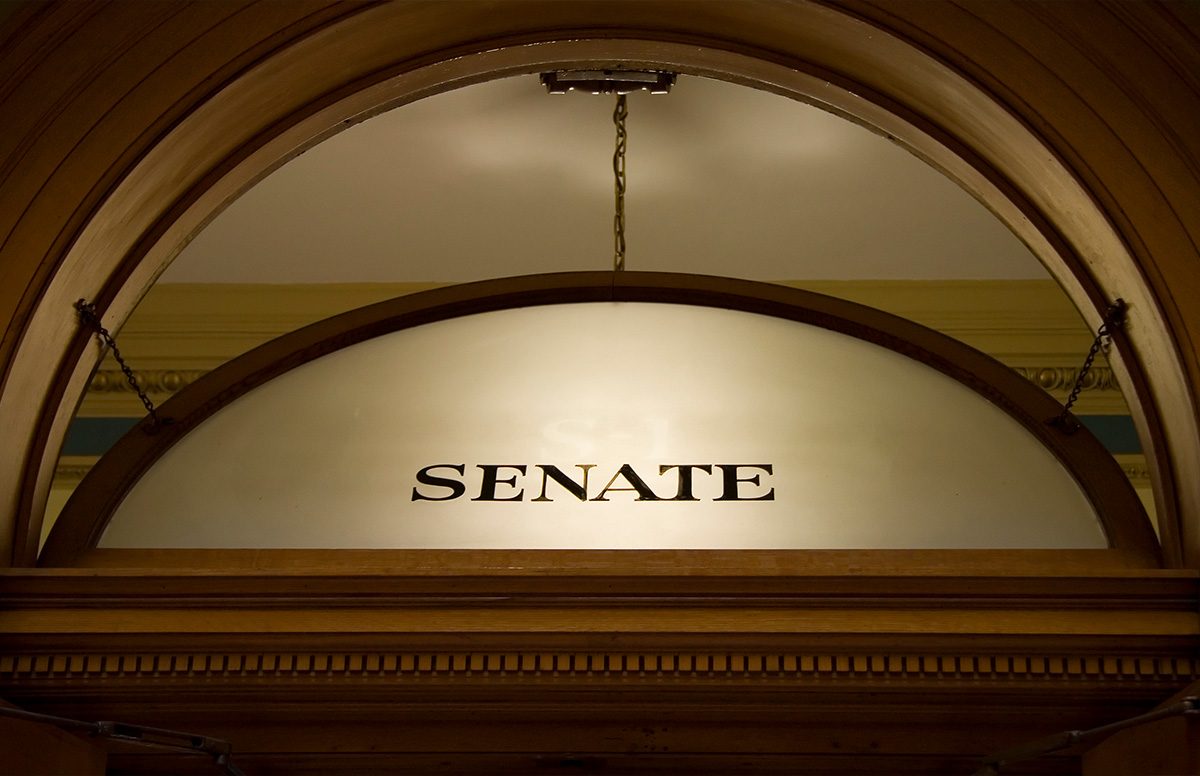“We need millions more homes of all kinds, single family, apartments, condos, duplexes, manufactured housing, you name it, so individuals and families can have a roof over their heads and a place to call home,” E. Scott Turner, President-Elect Donald Trump’s nominee to be the next Secretary of the U.S. Department of Housing and Urban Development (HUD), said.
With the passion of a pastor, which he is, Turner took center stage at the Senate Committee on Banking, Housing and Urban Affairs’ January 16 hearing on his nomination.
The hearing had Turner fielding questions from many committee members, mostly revolving around one central issue: How can we lower the cost of housing? His answers repeatedly reflected a few themes: reducing regulations, decreasing interest rates, and bringing down the cost of materials.
When asked if he would support the Housing Choice Voucher program, the HOME program, Veterans’ homelessness programs, Community Development Block Grants, Family Self Sufficiency, and others, Turner’s answer was the same: He committed to maximizing funding, assessing programs that exist for their efficiency and output, and making sure programs are doing what they were intended to do. Lowering regulatory barriers was another top topic of the hearing; Turner assured the committee that reviewing federal and state regulatory barriers to affordable housing is a top priority.
Sen. Mike Rounds (R-SD), who has worked with LeadingAge and others to include a solution for a vacant, dilapidated 15-unit Section 202 community in his home state into the National Defense Authorization Act, urged the need for more options for owners of the oldest Section 202 communities to meet their own, and their communities’, needs. In the NDAA bill, which has yet to be enacted, LeadingAge worked to ensure that the HUD Secretary can transfer the rental subsidy contract to another owner on another site to preserve overall affordable housing. Rounds also discussed cutting red tape to help federal programs work more efficiently, including Davis-Bacon and Build America, Buy America requirements, which Rounds said slow process down and increase costs. Rounds urged Turner to review and adjust these policies.
Several senators questioned continuing to increase spending for HUD programs when the shortage of affordable housing has only become more severe, and homelessness is only increasing. Sen. Bill Haggerty (R-NC) said that record HUD funding has not worked because the nation has great needs and long waiting lists for affordable housing. “There is record funding now and we are not meeting the need,” Turner said at one point in the hearing.
Sen. John Kennedy (R-LA) urged a new policy to urge state and local governments to increase their housing supply by 3% each year; those that do not do so would see their HUD funding cut by 1.5% and those that meet or exceed this 3% increase would see their HUD funding increase by 1.5%. Kennedy also warned Turner about insurance issues becoming a hallmark of the next HUD term, and contemplated a national housing insurance program to spread risk nationwide.
Sen. Cynthia Lummis (R-WY) raised rural and Native American Indian country issues, urging Turner to consider efforts to repair dilapidated and unsafe housing in rural areas. Sen. Pete Ricketts (R-NE) also raised concerns about rural housing, noting that both urban and rural areas have a shortage of affordable and available homes. When he was governor of Nebraska, Ricketts said he supported a Rural Workforce Housing Fund that provides low interest loans to developers to build needed housing, as well as a similar program for middle-income housing development.
Sen. Lisa Blunt Rochester (D-DE), a former secretary of Delaware’s Department of Labor, asked if Turner supported tying receipt of housing assistance to work requirements; Turner said he does. Sen. Ruben Gallego (D-AZ) cautioned Turner not to embrace any revival of the first Trump administration’s public charge rule, which would have displaced Americans in mixed-status households from their HUD-assisted housing; Turner responded that hard decisions would have to be made. Sen. Bernie Moreno (R-OH) emphasized how immigrants in the country illegally have increased housing costs; Turner agreed, saying this has caused a lot of the homelessness in the U.S. Moreno also called out conditions at HUD properties in Cleveland. “These properties are so bad that no one should be allowed to live there,” while noting that the buildings’ owners were profiting from them while in these terrible conditions.
Sen. Angela Alsobrooks (D-MD) questioned Turner on the federal workforce, noting that Maryland has 135,000 federal workers, and asked if he would replace career federal workers with political appointees. Turner responded that he would look at his staff to make sure HUD is carrying out its mission.
Committee Chair Tim Scott (R-SC) noted at the beginning of the hearing, the committee’s first this session, that “this is not simply the Banking Committee; Housing and Urban Affairs are critical to meeting the needs of the American people.” Scott and Ranking Member Elizabeth Warren (D-MA) committed to bipartisanship as both share the same goal of addressing the nation’s affordable housing shortage.
After the Committee approves his nomination, the full Senate will vote to confirm Turner as the next HUD Secretary. Both actions are expected.
LeadingAge looks forward to working with Turner and the next HUD team.
Read testimony and watch the hearing here.

 Shutdown Week Three: Impact of Ongoing Closure on Affordable Housing
Shutdown Week Three: Impact of Ongoing Closure on Affordable Housing


